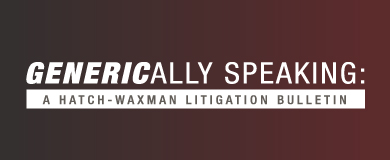- Acumen Powered by Robins Kaplan LLP®
- Affirmative Recovery
- American Indian Law and Policy
- Antitrust and Trade Regulation
- Appellate Advocacy and Guidance
- Business Litigation
- Civil Rights and Police Misconduct
- Class Action Litigation
- Commercial/Project Finance and Real Estate
- Corporate Governance and Special Situations
- Corporate Restructuring and Bankruptcy
- Domestic and International Arbitration
- Entertainment and Media Litigation
- Health Care Litigation
- Insurance and Catastrophic Loss
- Intellectual Property and Technology Litigation
- Mass Tort Attorneys
- Medical Malpractice Attorneys
- Personal Injury Attorneys
- Telecommunications Litigation and Arbitration
- Wealth Planning, Administration, and Fiduciary Disputes
Acumen Powered by Robins Kaplan LLP®
Ediscovery, Applied Science and Economics, and Litigation Support Solutions
-
April 23, 2024David Martinez Recognized Among Top 100 Lawyers in Los Angeles by LA Business Journal
-
April 15, 2024Robins Kaplan Named to 2024 BTI Client Service A-Team
-
April 9, 2024Robins Kaplan LLP Files Complaint Against Social Media Giants Meta, Snap, TikTok on Behalf of Spirit Lake Nation, Menominee Indian Tribe of Wisconsin
-
April 30, 2024Navigating Generational Dynamics
-
May 2-3, 2024ACI Advanced Forum on Managed Care Disputes and Litigation
-
May 6, 2024Litigating with the Legends
-
March 2024e-Commerce: Pitfalls and Protections
-
March 22, 2024‘In re Cellect’:
-
March 14, 2024How Many Cases Have You Tried to a Verdict?
-
September 16, 2022Uber Company Systems Compromised by Widespread Cyber Hack
-
September 15, 2022US Averts Rail Workers Strike With Last-Minute Tentative Deal
-
September 14, 2022Hotter-Than-Expected August Inflation Prompts Massive Wall Street Selloff
Find additional firm contact information for press inquiries.
Find resources to help navigate legal and business complexities.
Classen Immunotherapies, Inc. v. Elan Pharms., Inc.
Reanalyzing clinical data to identify patentable information and filing patent applications as well as making and selling a drug with a revised label reflecting the information derived from that clinical study falls into the § 271(e)(1) safe harbor provision and does not infringe as a matter of law.
October 25, 2016

Case Name: Classen Immunotherapies, Inc. v. Elan Pharms., Inc., Case No. RDB-04-3521, 2016 U.S. Dist. LEXIS 131964 (D. Md. Sept. 27, 2016)
Drug Product and Patent(s)-in-Suit: Skelaxin® (metaxalone); U.S. Patent No. 6, 584,472 (“the ’472 patent”)
Nature of the Case and Issue(s) Presented: The district court received the case on remand from the Federal Circuit. The Federal Circuit had agreed with the district court’s conclusion of non-infringement because Elan’s activities were encompassed by the safe-harbor provision of § 271(e)(1) as relating to developing clinical data and submitting those data in an sNDA to the FDA. Because the district court did not consider activities—“(1) reanalyzing the clinical data to identify patentable information and filing patent applications; and (2) making and selling Skelaxin with the revised label that contained the information derived from the clinical study”—that occurred after the submission to the FDA, however, the Federal Circuit remanded the case for further proceedings. The court granted Elan’s motion for summary judgment of non-infringement.
Why Elan Prevailed: The court determined that both post-FDA submission activities fell within the scope of the § 271(e) safe harbor. In remanding the case, the Federal Circuit advised that, generally, filing a patent application is not infringement of a patent, nor is it an act of infringement when placing information submitted to the FDA on a product label after submitting an sNDA. Classen failed to provide any evidence that those general principles were inapplicable in this case. Elan’s post-FDA submission acts were not of a sufficiently commercial nature to form a basis for infringement. Thus, as a matter of law, Elan did not infringe Classen’s patent.
In addition, Classen provided no evidence that the reanalysis was for commercial purposes. Accordingly, even if the Elan could infringe as a matter of law, Classen failed to demonstrate that there was a genuine issue of material fact relating to infringement.
Related Publications
Related News
If you are interested in having us represent you, you should call us so we can determine whether the matter is one for which we are willing or able to accept professional responsibility. We will not make this determination by e-mail communication. The telephone numbers and addresses for our offices are listed on this page. We reserve the right to decline any representation. We may be required to decline representation if it would create a conflict of interest with our other clients.
By accepting these terms, you are confirming that you have read and understood this important notice.
